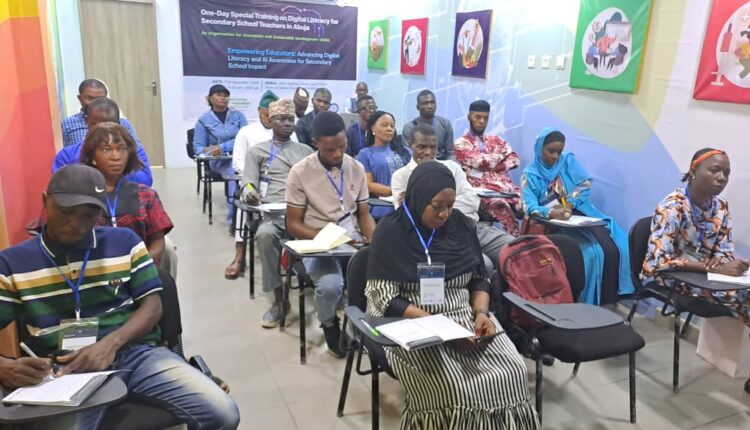The Organization for Innovation and Sustainable Development (OISD) has taken a significant step toward transforming education in Nigeria by organizing a one-day special training on digital literacy for secondary school teachers in Abuja.
The event, held at the OISD Training Centre in Abuja, was designed to equip educators with essential digital skills and increase awareness of Artificial Intelligence (AI) to enhance their teaching impact.
In his opening remarks, Mr. Jamilu Yusuf Dan-Ummah, the CEO of OISD, introduced the theme of the program: “Empowering Educators: Advancing Digital Literacy and AI Awareness for Secondary School Impact.” He emphasized the critical role teachers play in shaping the future of education and the need to adapt to the rapidly evolving digital landscape.
Mr. Dan-Ummah highlighted that the objective of the training was to bridge the digital gap in classrooms by empowering teachers with the knowledge and tools to integrate digital literacy and AI-driven solutions into their teaching methods.
According to him, educators must stay ahead of technological advancements to prepare students for the challenges and opportunities of the 21st century.
“This training is a response to the growing demand for educators who can leverage digital tools and AI to deliver effective learning experiences. Our goal is to ensure that teachers are not just aware of these technologies but are also capable of applying them to improve student outcomes,” Mr. Dan-Ummah stated.
The program brought together secondary school teachers from various schools across Abuja, providing them with hands-on training on essential digital tools, interactive learning platforms, and AI concepts.
Facilitators at the event shared insights on how to use technology to make lessons more engaging, foster critical thinking, and prepare students for a technology-driven world.
The event concluded with participants expressing their appreciation for the training and the actionable insights they gained. Some of the teachers highlighted the importance of continuous capacity-building programs to keep up with emerging educational trends.


